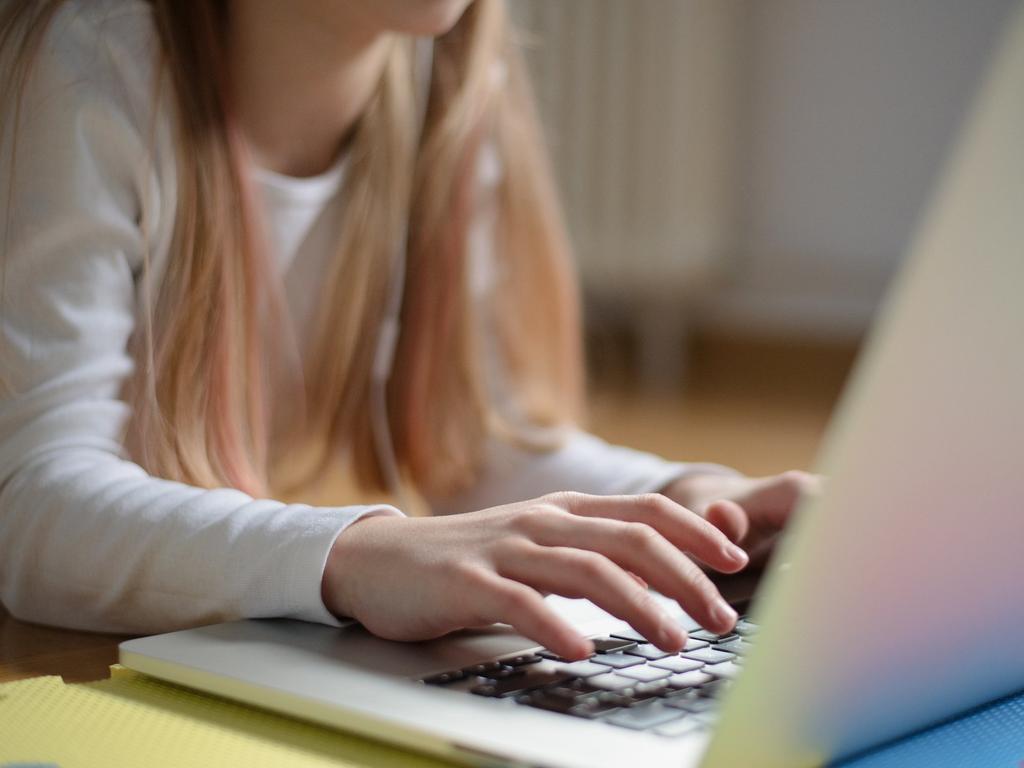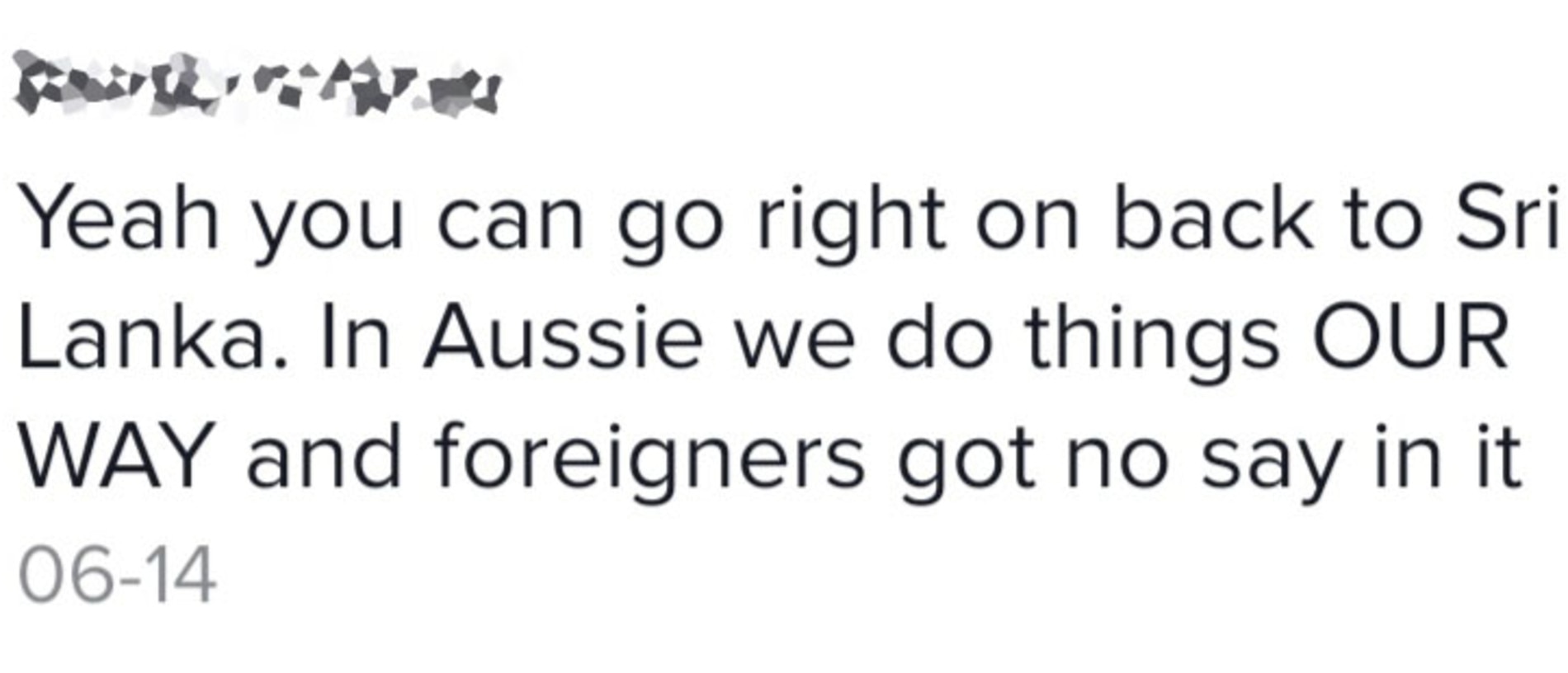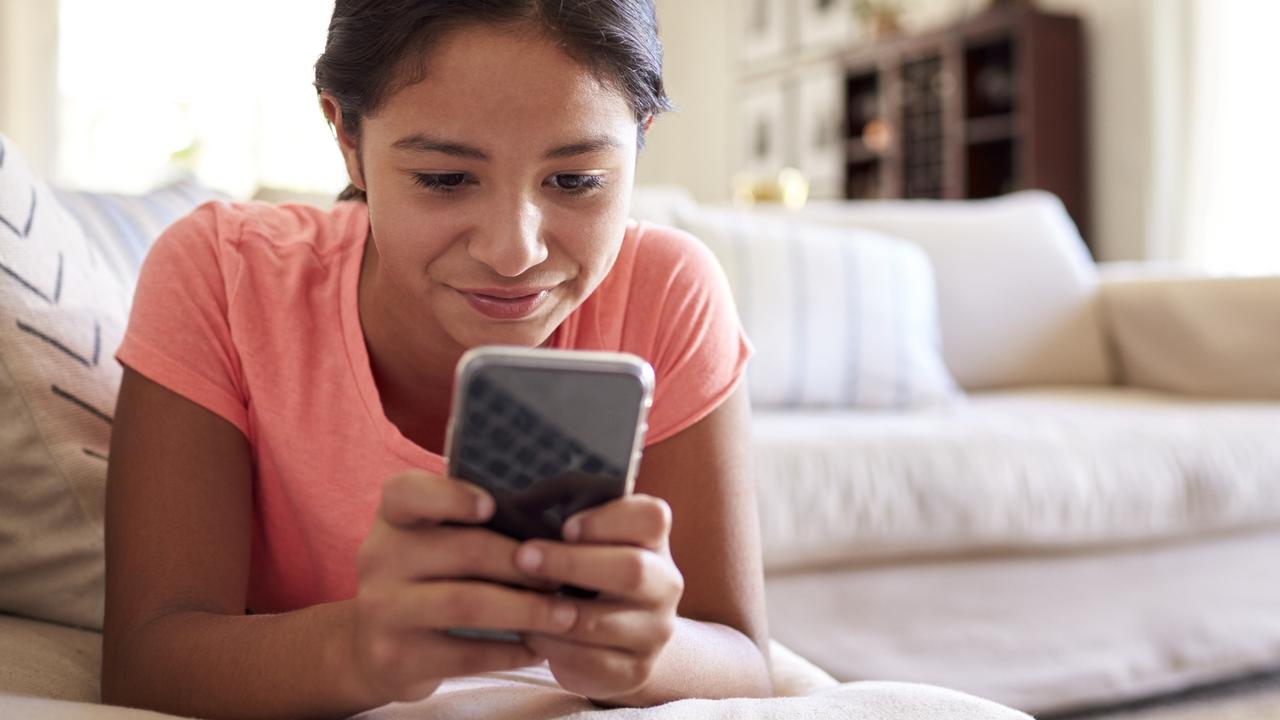Survey finds 65 per cent of Australian girls have been harassed on social media
Girls and young women in Australia are putting up with a shocking level of online harassment, including threatening messages.
Angelica* rarely posts publicly on her social media profiles but even during the short periods when she has done so, she has received vulgar, mean and offensive messages.
The 22-year-old is not alone, a new survey has found a shocking 65 per cent of girls and young women in Australia have been harassed on social media, much higher than the global average of 58 per cent.
Plan International, the charity for girls’ equality, today launched a worldwide campaign for social media companies to improve their practices, and hope people will support it by signing an open letter.
It comes after a survey of 14,000 girls aged 15-25 across 22 countries, including Australia, the US, Canada, Brazil, Benin, Japan, Zambia and India, found women in every country had been exposed to explicit messages, pornographic photos, cyberstalking and other distressing forms of abuse.
The most common type of harassment was abusive and insulting language (experienced by 59 per cent of girls surveyed), followed by deliberate embarrassment (41 per cent), body shaming and threats of sexual violence (both 39 per cent).
Of the 1000 girls surveyed in Australia, one in five had feared for their physical safety due to online threats.
The Free to Be Online? report is the largest ever study of its kind to map the experiences of girls on social media.
The survey found 44 per cent of Australian girls had experienced harassment on Facebook, followed by 35 per cent on Instagram and 24 per cent on Snapchat.
The women said 40 per cent of the harassment was from people at school or work, 29 per cent said it was from a friend and 16 per cent said former partners.
More than one-third of girls (38 per cent) said they had been harassed by anonymous social media users.
RELATED: Tinder texter reveals huge mistake

RELATED: Increase in self-injury ambulance attendances in Victoria
BODY SHAMING, RACISM AND VULGAR COMMENTS
Angelica said Twitter had been the worst for harassment and she had received random racist comments from accounts that looked like bots.
“It’s about things like my appearance because I am a black woman, saying ‘you’re a monkey’, ‘ape’, ‘go back to where you came from’,” she told news.com.au.
“There have been comments about slavery and sexual violence relating to slavery as well.”
She said the comments were very random and unexpected and had sometimes, but not always, been in response to her sharing something about racial justice or celebrating other women of colour.
“Even that alone can trigger someone to respond in a very racist way,” she said.
“You just have to expect every day you come online that you might face some harassment or abuse … because it can be so random.”
Sydney resident Mads*, 21, has also experienced racism online mostly on Twitter and TikTok.
“Some comments were body shaming me and saying my ears were really big,” she said.
Mads, who moved to Australia from Sri Lanka when she was one years old, said the comments were not always related to what she had posted.
“I think definitely calling out racism and homophobia can inflame the responses,” she said.
“But even the more innocent things can get hate on TikTok because when people have those views, especially trolls, they will attack people who even put out an uncontroversial post.”
The Sydney resident finds herself self-censoring posts and even decided not to post one video because she noticed some armpit hair and had seen other women being made fun of on TikTok for it.
“I shouldn’t have to go to these lengths,” she said.
“Even the most inane things can get hate if haters are feeling mean that day.
“On Instagram, every young girl or woman has had random men try to talk to them and be inappropriate to them, it’s not acceptable.”
RELATED: Free mental health and wellbeing support

DISTURBING COMMENTS LEAVE WOMEN FEELING UNSAFE
According to the Free to Be Online? report, 21 per cent of Australian girls felt unsafe as a result of online harassment, while 53 per cent had lower self-esteem or loss of confidence and 51 per cent had experienced mental or emotional stress.
For girls who identified as LGBTQI+ online, almost half said they experienced harassment due to their sexual or gender identity.
About 60 per cent of girls who identified as an ethnic minority said they had been specifically targeted because of this.
Both Mads and Angelica say the negative comments have taken their toll.
“When I posted a simple TikTok about the history of racism I was so scared, I was preparing myself for the vitriol,” Mads said.
“I have to be in a good mindspace and protect myself.
“I think it silences us — young women and girls — I think that’s one of the more unfortunate things.
“At the end of the day I don’t really care what anonymous trolls with no profile pics say but at the same time I don’t want to submit myself to the hatred if I don’t have to.”
Angelica, also from Sydney, said she had felt really sad at receiving some of the comments.
“I get emotionally frustrated at the fact that people are really mean and vulgar,” she said.
“Depending on what is said, it can be quite disturbing and upsetting to feel that.
Some of the comments had also made her feel unsafe.
“At times, especially when they are racist comments, it can feel quite unsafe as I don’t know who’s behind the profile and what they’re capable of,” she said.
“You start to question, even if you have privacy settings, are you really protected? Can people still find you?”
‘YOU CAN’T JUST TURN IT OFF’
Despite the problems, Mads said social media had been a blessing to a lot of people, especially during the pandemic, and having to step away from it was difficult.
“It’s so easy to say, just turn it off, don’t look at it and you won’t face hate but for so many people it is a source of community and happiness — it’s so much more than mindless entertainment,” she said.
“I’ve had very positive experiences, being a young queer person, I’ve found community and friendship.
“Especially for minorities, the internet is somewhere you can go to express yourself, turning it off is not a long term solution.”
The Free to Be Online? report found 99 per cent of Australian girls used social media and 75 per cent were frequent users.
Most girls started to experience harassment online between the ages of 12 and 16 years old.
Globally the survey found 19 per cent who had been subject to online harassment significantly reduced their use of social media, while 12 per cent changed the way they expressed themselves online.
About 44 per cent said social media companies needed to do more to protect them.

‘SOCIAL MEDIA IS NEW FRONTIER FOR GENDERED VIOLENCE’
Both women believe social media companies should take more responsibility for protecting users.
Angelica said the biggest issue was around the reporting measures, and the policy or procedures used to decided whether a comment was abusive. She believes the groups impacted need to be involved in identifying what the kinds of comments that should be acted on.
“It’s about them understanding what sexual harassment looks like online, or ableism or racism,” she said.
“Young girls need to have a seat at the table, co-developing strategies and reporting mechanisms for violence online.”
Mads agreed that blocking or reporting accounts was not always effective.
“I’m not always happy with the result and I think that is something social media companies do need to look at,” Mads said.
“The community guidelines are not always serving young people, there are some things that are not seen as a violation.”
However, she said schools and other community groups could also play a role, educating young people to be as safe as possible and not to participate in trolling, and governments should also act.
“This is different to person-to-person contact but it’s still hate speech and discrimination,” she said.
Plan International chief executive officer Susanne Legena said the impact of spiralling levels of abuse were deeply troubling.
“There’s no doubt about it: social media is the new frontier for gendered violence and the rapid escalation we’ve witnessed during the coronavirus pandemic is chilling,” she said.
The organisation launched a campaign today calling on social media companies to improve their reporting.
“Girls tell us that when they report, often clearly quite horrific offensive content is inexplicably deemed as acceptable and even when their attackers are banned, they’re back at it days later and often under the protection of anonymity. The system is broken and something needs to change.”
Ms Legena said the campaign was targeting the behaviour of social media companies because 45 per cent of Australian girls had identified them as being the best placed to address it.
“Everyone is accountable for keeping girls safe, from individuals to bystanders, to governments,” Ms Legena said.
“We’re starting our campaign to clean up the internet with the social media companies, because that is who girls have told us they want to respond to this, first and foremost.”
* Both women preferred to use their first names only




